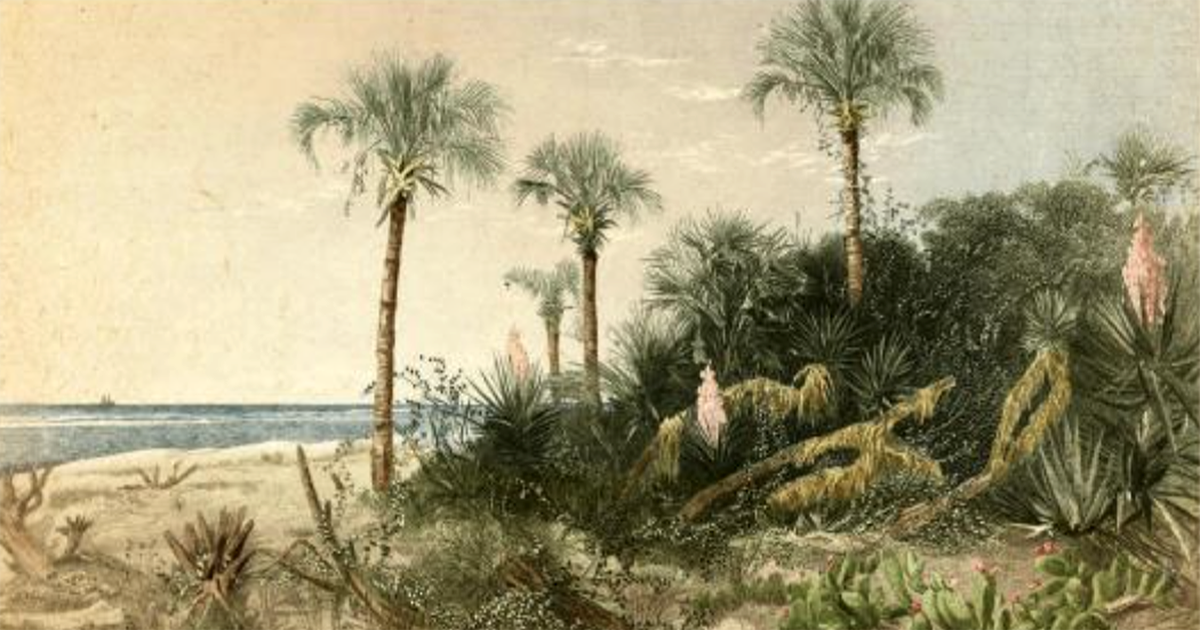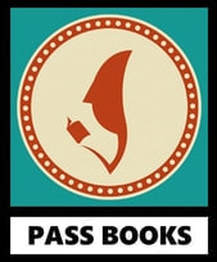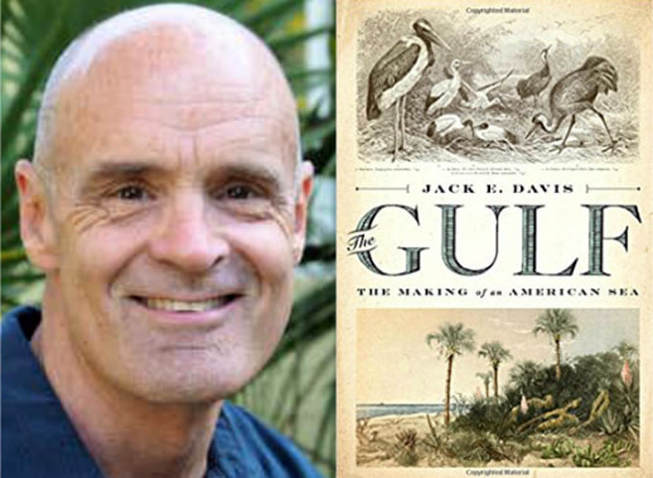A sweeping new narrative explores the Gulf of Mexico, taking readers from its exotic pre-history to its precarious present.
- story by Scott Naugle
Davis continues with a foreboding close to the paragraph, “The doomed megafauna struggled for survival against a common implacable predator – humans with spears and shell clubs – and against a changing climate. Lost causes both, as it turned out.”
Between his opening comments on the plate tectonics forming the Gulf of Mexico and the present day, Davis tells a rip-roaring, relevant, concise, beautifully written history of the gulf. He is a polymath covering every aspect from early twentieth-century visits by the painter Winslow Homer and poet Wallace Stevens; Spanish, French, and English exploration; the dawn of commercial fishing; the advent of tourism; and the BP oil spill.
Jack Davis spent a lifetime preparing to write this monumental work. He recalls his childhood romping on the beaches and marshes along the coast of the Florida panhandle, studying the birds while listening to the melodious rhythm of the surf. He earned undergraduate and graduate degrees from the University of South Florida and a doctorate from Brandeis University. Davis currently teaches environmental history and sustainability studies at the University of Florida.
Davis was awarded the 2018 Pulitzer Prize for History for The Gulf: The Making of an American Sea.
While the research is meticulous and expansive ranging from social history to wildlife and the coastal flora, it is the narrative, the people and story of the gulf, bringing this history to life like a multi-layered novel. “Among the most scintillating of sights were fish in schools as long as freight trains, running with the invisible gulf tide” was the scenery encountered by Winslow Homer in 1904, as he traveled with “rod and reel … and paints and brushes” as described by Davis. A century later, Joseph Boudreaux, earning a meager living as a commercial fisherman, lamented over the effects of Hurricanes Katrina and Rita, erosion caused by commercialization and inland effluents, and the unnatural effects of levees and dams, “that’s when the erosion’s going.”
Davis explicates, “If you were a fisher, every day was a day not unlike the heron that fished the marsh - a quest to make the quota for sustenance.” The gulf, over-used and exploited, has exceeded its quota, depleted and polluted. We are modern-day versions of our ancestors with “spears and shell clubs,” employing instead rigs, nets, and chemicals against the gulf.
The Gulf is the 2018 selection for One Book One Pass, a community reading initiative where everyone reads the same book and has the opportunity to hear the author speak. In 2016, the first year for the program, Erik Larson spoke about the best-selling “Dead Wake: The Last Crossing of the Lusitania.” Last year, National Book Award winner Jesmyn Ward discussed “The Fire This Time: A New Generation Speaks About Race,” a collection of essays edited by Ward.
For Larson and Ward, the community turnout was both overwhelming and enthusiastic. The Randolph Center in Pass Christian was stacked to standing room capacity to hear each author speak and answer questions about their work.
The date for this year’s presentation by Jack Davis is Wednesday, October 17th 7:00 PM at the Randolph Center, 315 Clark Avenue in Pass Christian. It promises to be another informative and fascinating evening. Comments are closed.
|
Categories
All
Archives
July 2024
|
Shoofly Magazine Partners
Our Shoofly Partners are local businesses and organizations who share our mission to enrich community life in Bay St. Louis, Waveland, Diamondhead and Pass Christian. These are limited in number to maximize visibility. Email us now to become a Shoofly Partner!





























 RSS Feed
RSS Feed























